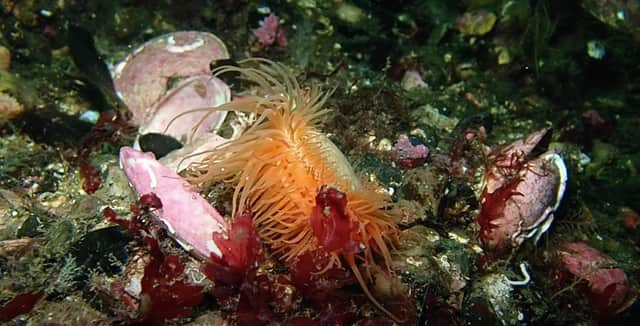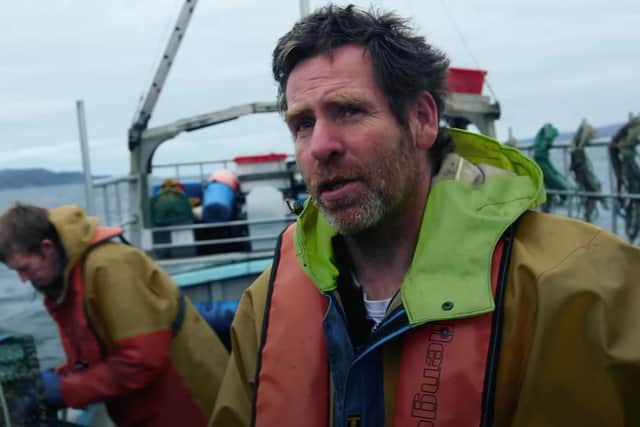New documentary film from Our Seas Coalition highlights the impact of scallop dredging on Scotland's coastal communities


The documentary released by the Our Seas Coalition, which represents businesses, bodies, individuals and organisations advocating for more sustainable approaches to Scottish seas, as part of their wider campaign calling to restore an inshore limit on bottom-towed fishing in Scottish waters.
After the Inshore Fisheries Act was revoked in 1984, coastal communities across Scotland have been hit hard by a declining fish population, with sea beds damaged by a rise in commercial fishing and rise of trawlers.
Advertisement
Hide AdAdvertisement
Hide AdIsle of Skye based creel fisherman Bally Philp and Loch Carron diver Chris Rickard are among those featured in the film, revealing the impact of scallop dredging which they have seen on their businesses, seabeds and communities first hand.


The film follows several years of campaigning by the Our Seas Coalition and its members to highlight the impact of continued scallop dredging on Scottish coastlines, not merely on fishermen and coastal workers but also on Scotland’s diverse marine life.
Clips from diving footage are used throughout the film to show how scallop dredging has been seen to wipe out beds of maerl seaweed and rare flame shell beds around Scotland.
Coordinator for the Our Seas Coalition Ailsa McLellan said: “The Scottish Government is failing to prioritise our marine environment and fisheries has barely featured in the Scottish Parliament’s recent Green Recovery inquiry.
"We made this film to try and raise awareness of this environmental catastrophe happening on our doorstep, empowering people to demand that the Scottish Government step up to the mark and take urgent action to halt the decline. We want the Scottish Government to weave habitat and fishery recovery into the very fabric of their green recovery plan and to reinstate a coastal limit on bottom-towed fishing gear.”
They continued: "In the 1920s Scotland employed more than 30,000 fishermen, today there are less than 5,000; the current system is failing us all; and responsibility lies squarely with fisheries managers, not fishermen.”
Nick Underdown, Head of Communications at Our Seas Coalition member Open Seas, commented: "It’s amazing how many people do not realise that bottom-trawling used to be banned in our coastal waters right up until the 1980s and the decline in fish and seabed damage that resulted from its repeal. Now vast swathes of our seabed is being routinely trawled and dredged close to the shore, and only 5% of our inshore waters are actually protected.
"Understanding the history is fundamental to working out the solution. People are now standing up for the environment and standing up for more sustainable, smaller-scale fishing and many other livelihoods that rely on healthier seas. The science is there, if we look after our coastal seabed, then fish populations and marine life will bounce back.”
Advertisement
Hide AdAdvertisement
Hide AdA message from the Editor:
Thank you for reading this article. We're more reliant on your support than ever as the shift in consumer habits brought about by coronavirus impacts our advertisers.
If you haven't already, please consider supporting our trusted, fact-checked journalism by taking out a digital subscription.